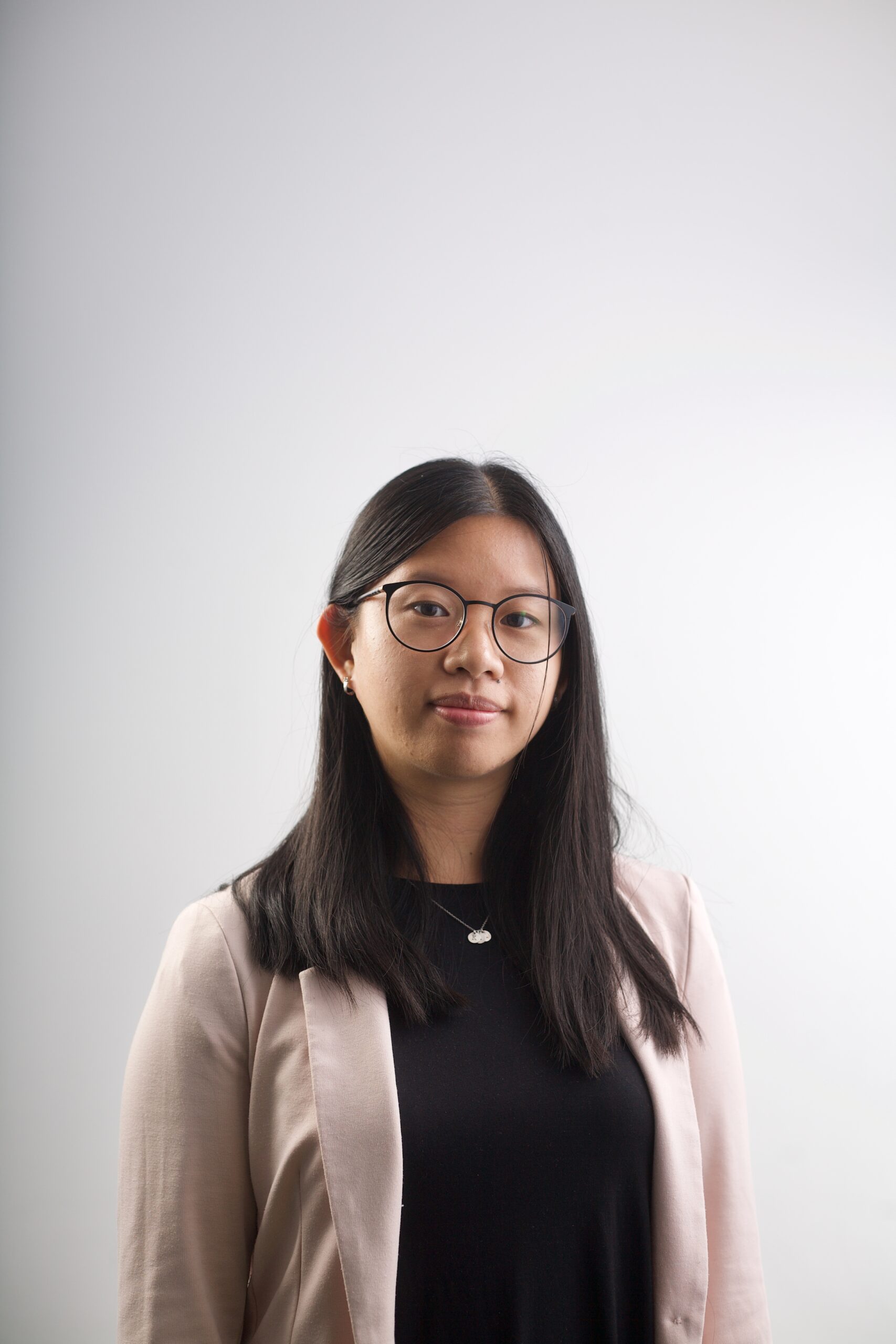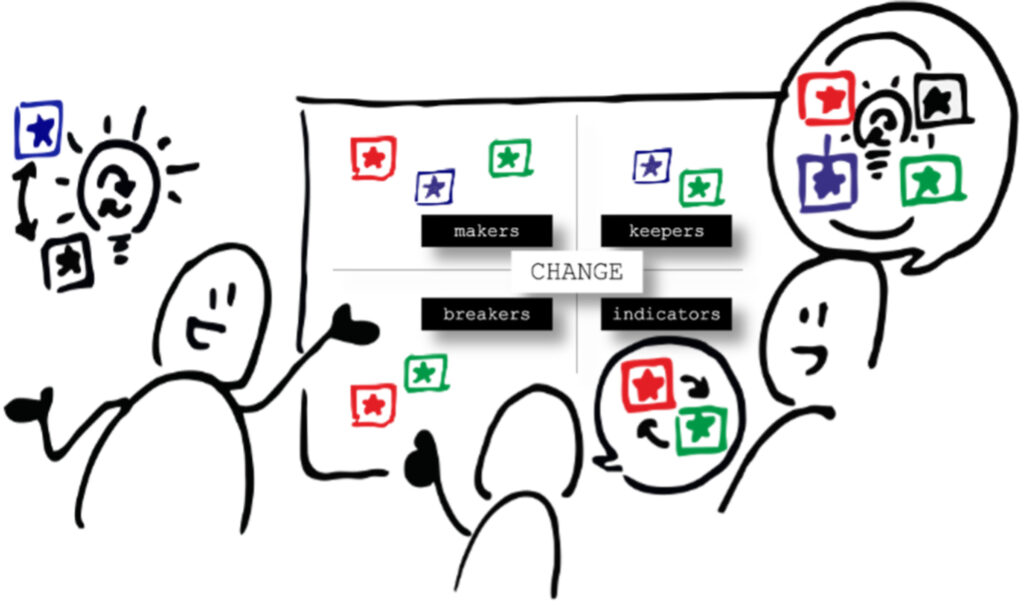Illustration by Kezia Olive (created for the workshop)
As I am in the reporting period of my non-academic secondment, let me share my reflections on how much the opportunity benefited me as a growing researcher: I was challenged to re-imagine what it means to do research. Let me tell you the story.
I had no idea what I was signing up for when I joined a project by PORTIA (our non-academic partner organization) in developing a workshop as part of my G-VERSITY training. PORTIA is a non-profit organization focusing to advance understanding of gender issues in science, in participation, in organizational practices, and in science knowledge – so I just thought that I’d like to work with them to learn something about how research is translated into policy. Moreover, since this placement is part of my academic training, I thought that means I would do a lot of reading, and maybe work with some data and present them or something along those lines. Yet, Dr Claartje Vinkenburg and Dr Elizabeth Pollitzer from PORTIA took me in as a response to my interest and opened the backstage door for me to a whole new experience.
My first shock: science actually making practical change?
In the beginning, I really thought it was just a “formality” where research meets policy and practice, and even considered it to be just two separate worlds that would not go hand in hand. But I was proven wrong when I was introduced to INSPIRE, a Horizon Europe project, with whom PORTIA is designing a workshop for stakeholders aiming to make progress in inclusive gender equality in research and innovation.
As I went through the summary of the project and joined their conference session last year, it hit me: most of the people involved are researchers who are actually making practical change, in the real world. They are providing and co-creating knowledge about gender equality, work with public and private institutions, and advise policy-making for Europe.
I hope you don’t laugh at my perspective: I honestly think the research world, especially in social science research, is so detached from “the real world” of practice and policy. And even though we pump more knowledge out, try out interventions, and so on, we have very limited capabilities of actually making any significant dent in the world.
And here I am, being proven wrong. People who are part of INSPIRE come from the research community – researchers, representatives of research organizations, institutions, universities, and so on – and they step in, initiating connections and building bridges so that change related to gender equality in research and innovation is happening. I didn’t know that being a researcher can also mean working like this, but I’m glad I was exposed to this possibility.
Continuing on, I was swept off my feet even more as I was involved deeper in the workshop design. The workshop was titled “RE-IMAGINE”, where we invited stakeholders (such as representative leaders from research funding organizations, research institutions, government) to re-imagine an inclusive gender equal future for research and innovation. The whole workshop was designed by Dr Claartje Vinkenburg and Dr Carolin Ossenkop – both experts in participatory action research, and me. I’m quite embarrassed to say that I was part of the team designing the workshop, as I was practically a wide-eyed intern who had to re-imagine what discussing “research” means in each and every meeting.
My own journey of “re-imagining” (research) and where it clicked
My idea of research is obviously rooted in my educational background, which is quantitative psychology, where we, the researchers, are at the center of it all, running tests and presenting “new knowledge”. To nobody’s surprise but mine, participatory action research was completely different – the focus was on the participants’ knowledge and experience, and the results rely on the collective, who derives insights from and for the field.
In line with this idea, from all the meetings that I had with Caro and Claartje, it was clear that we were not making a workshop where the participants take turns giving presentations and lecturing each other and end it with a “mandatory” break-out small group discussions to “formally” write things down. This workshop should properly challenge these distinguished leaders to re-imagine the future, and plant seeds for collaborations and potential solutions beyond any of us can prescribe as we tap into the power of the collective. To even push everyone to tap into their child-like creativity to re-imagine the future together.
I was given the task to develop documents and digital materials to support this aim. The requirements are clear: if we are going to use slides to guide people, we will use no words. We want people to break free from their usual idea of a “formal” lecture/meeting. Obviously, I had no idea what to do. So I did what the workshop was designed to do: re-imagine how this whole thing would take place. Thankfully, way in the beginning, Claartje had equipped me with a book: “Visual Thinking” by Willemien Brand. And that’s where it clicked.
I loved drawing and creative arts as a child. I still do, and am doing a lot of art-related activities outside of work, including digital design. Why have I not thought of bringing this side to research? A picture is worth a thousand words, that’s how the famous saying goes. So I started drawing. I thought of how the activities and discussions in the workshop would look like, how to reduce the procedural information as much as possible so it’s intuitive for people when they see it, and drew everything on paper before transferring it into a digital version.
These pictures became the only visual cues that the participants could see. It served the purpose of the workshop, to nudge these people to let their messy, genuine, ideal images come, be discussed, and be built upon.
More than that, I realized another point: this experience showed me how my skills and habits as an independent doctoral student can be linked with my “out of work” self to encourage others. And it brings so much more meaning into what I am doing.
Collaborating with non-academic organizations can be very beneficial, give it a shot!
In the end, as I reflect upon this experience, I realized how much the workshop was not only challenging others to discover and “re-discover” change for an inclusive gender equal future in research and innovation. It also challenged me to “re-imagine” what it is like to be a researcher.
If, as a researcher, you have never considered doing a placement or internship with a non-academic organization, let this reflection convince you of how beneficial it was for me. Do give it a shot, especially if you get the opportunity! And if you want to know more about PORTIA and INSPIRE, check their website: https://www.inspirequality.eu

Gendered pathways to professional life (Finland)
